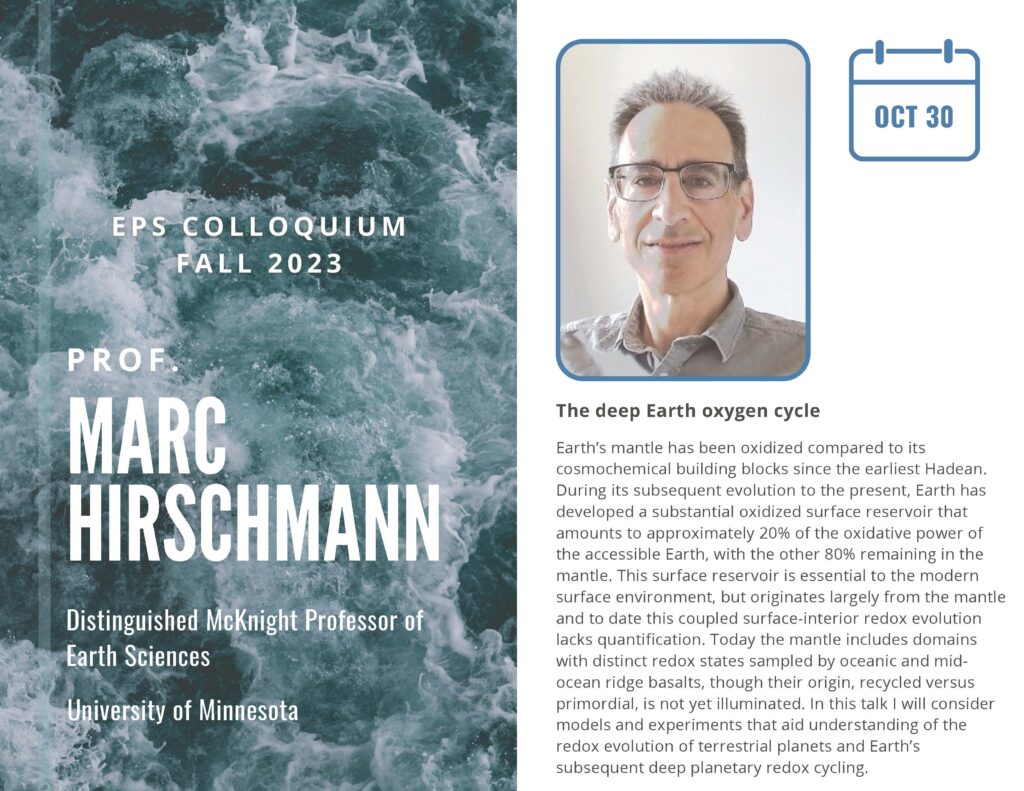EPS Colloquium – Marc Hirschmann, University of Minnesota
The Deep Earth Oxygen Cycle
Earth’s mantle has been oxidized compared to its cosmochemical building blocks since the earliest Hadean. This oxidation is linked to Earth’s initial differentiation, including processes in magma oceans, but these remain poorly understood. During its subsequent evolution to the present, Earth has developed a substantial oxidized surface reservoir that amounts to approximately 20% of the oxidative power of the accessible Earth, with the other 80% remaining in the mantle. This surface reservoir is essential to the modern surface environment, but originates largely from the mantle and to date this coupled surface-interior redox evolution lacks quantification. Today the mantle includes domains with distinct redox states sampled by oceanic and mid-ocean ridge basalts, though their origin, recycled versus primordial, is not yet illuminated. In this talk I will consider models and experiments that aid understanding of the redox evolution of terrestrial planets and Earth’s subsequent deep planetary redox cycling.
To be added to the EPS colloquium mailing list, please contact Caroline Carr at carolinecarr@fas.harvard.edu.

Marc Hirschmann is Professor of Earth Sciences at the University of Minnesota, where he has worked for more than 25 years. His interests include experimental and theoretical petrology, global geochemistry, and planetary science. Over the last decade his focus has been on the topics of deep Earth and planetary volatile cycles, magma oceans and the accretion and early differentiation of terrestrial planets, redox evolution of planetary interiors, and refinement of microbeam analytical techniques in support of these studies.

